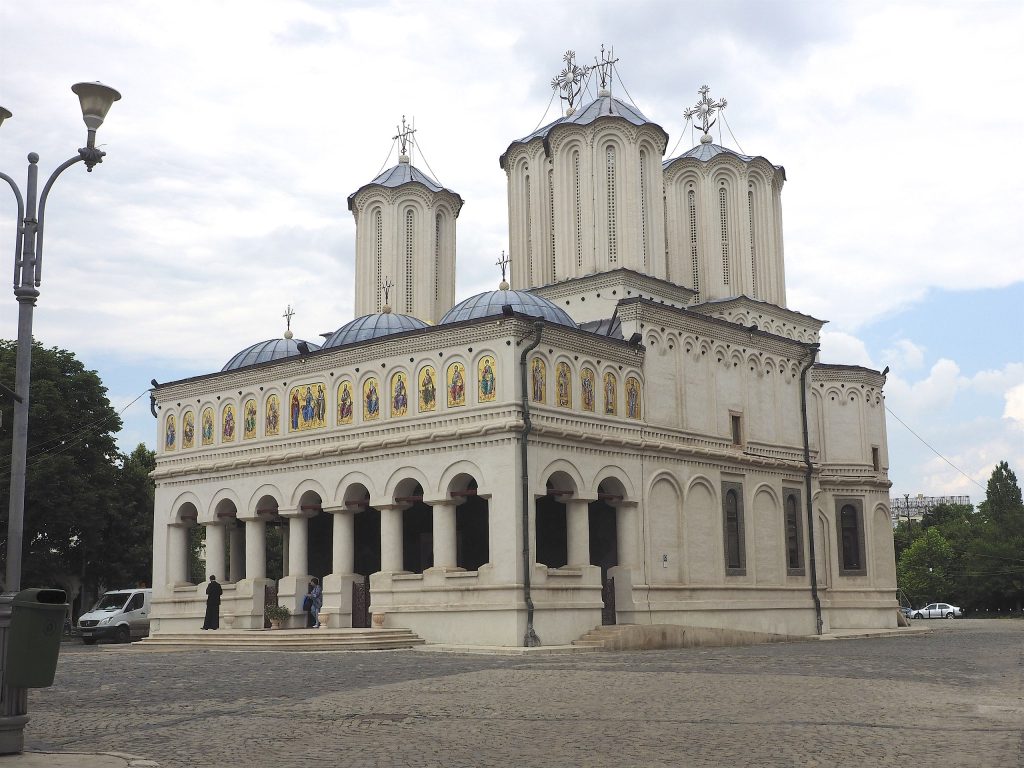
Please Follow us on Gab, Minds, Telegram, Rumble, GETTR, Truth Social, Twitter, and Facebook
On February 29, the Chancellery of the Holy Synod of the Romanian Orthodox Church took decisive action to defend the Romanian people living in the historic Romanian territories now occupied by Ukraine by “Blessing, encouraging and supporting the initiatives of the Romanian Orthodox communities in Ukraine to restore communion with the Mother Church, the Romanian Patriarchy, through their legal organization in the religious structure called the Romanian Orthodox Church of Ukraine.”
The move comes after the Zelensky regime has pursued a war on religion, seizing property from the Ukrainian Orthodox Church, which it accuses of collaboration with Moscow, and arresting clerics. The regime’s newly established Orthodox Church of Ukraine is actively seizing Church property and working to bring the Church under State control.
The move by the Romanian Orthodox Church to defend the rights of the Romanian people living on the present-day territory of Ukraine was met with a violent reaction by Ukrainian authorities. Instead of welcoming the intention of the Romanian parishes to leave under the jurisdiction of the Russian Orthodox Church and return to the mother church, the Romanian Orthodox Church, the response from Orthodox Church of Ukraine leaders reveals the true scope of Zelensky’s efforts to suppress religion and place it under the direct control of his government, that of ethnic cleansing.
The Orthodox Church of Ukraine reacted virulently. One of its important hierarchs, Bishop Viktor Bed published an aggressive statement on his Facebook page accusing the Romanian Orthodox Church of playing Putin’s and Moscow’s games: “The adoption of such a contemptuous and provocative decision towards Ukraine and the Orthodox Church of Ukraine, especially in the conditions of the Russian-Ukrainian war from 2014-2024, shows the great influence they have on the political community in Romania (the Romanian government) and the hierarchy of the Romanian Orthodox Church, the structures of the FSB of the Russian Federation and the Moscow Patriarchate, which by all means destabilize the unity of EU countries, NATO members and universal Orthodoxy.” Bed added that he “now understands why the Romanian Orthodox Church refrained from officially recognizing the local autocephalous Orthodox Church of Ukraine."
The new structure of the Romanian Orthodox Church, however, is a response to the aggressive actions of the Orthodox Church of Ukraine, led by Metropolitan Epiphanie, which has been an instrument of the Zelensky regime’s policy of ethnic cleansing by denying the Romanian minority the right to religious autonomy and the suppression of the Romanian language in religious services.
The Zelensky Regime has outlawed the Ukrainian Orthodox Church led by Metropolitan Onufrie (canonically located under Moscow) and arrested clerics, in an effort to confiscate all parishes by the newly formed Orthodox Church of Ukraine, including the Romanian ones, to bring them under the control of the state. What is clear to all objective observers is that fundamental rights and
freedom of conscience are under attack in Ukraine and that the Zelensky Regime is pursuing a policy of ethnic cleansing in an attempt to rid Ukraine of all minority populations. The decision by the Romanian Orthodox Church confirms that there is persecution in the churches and monasteries where the divine service is officiated in the Romanian language and seeks to address the issue.
It must be noted that the Romanian parishes on the present-day territory of Ukraine only came under the jurisdiction of the Moscow Patriarchate after the Second World War and the occupation of the respective territories by the USSR. The Romanian Orthodox Church never recognized the disappearance of its structures from these territories, incorporating them into the existing structures on the territory of Romania. As a result, the faithful in Bessarabia requested the reactivation of the Metropolis of Bessarabia in 1992, which had been inactive since 1944. Part of the territory of the Metropolis of Bessarabia, the Bishopric of South Bessarabia, operates on the present-day territory of Ukraine.
A little over a hundred Romanian parishes that exist today in Ukraine belong mainly to the Ukrainian Orthodox Church, which belonged to the Moscow Patriarchate until May 2022 when it declared its independence. But the Zelensky accuses it of secretly maintaining ties with Moscow. Therefore, in theory, Moscow and the Russian Orthodox Church should be the first to be irritated by the establishment of the Romanian Orthodox Church in Ukraine. In reality, however, the move interferes with the Zelensky Regime’s sinister policy of ethnic cleansing and thus is meeting the ire of Ukrainian officials.